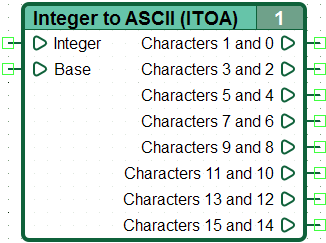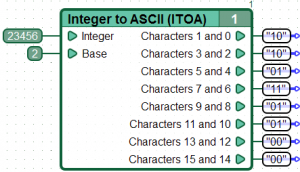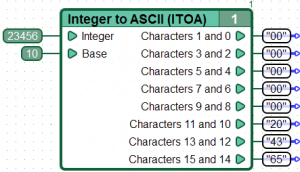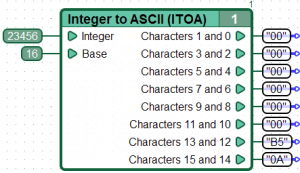| This documentation is out of date.
The new version of the documentation is here: https://cannylogic.com/docs |
Integer to ASCII
| Appearance | |
|---|---|

| |
| Symbol | |
| ITOA | |
| Group | |
| Converters | |
| Inputs | |
| Integer: | Integer |
| Base: | Integer |
| Outputs | |
| Characters 1 & 0: | A pair of ASCII characters |
| ... | ... |
| Characters 15 & 14: | A pair of ASCII characters |
| Version CANNY Lab | |
| from 1.8 | |
Converts a numeric value in to a hexadecimal string representation of the specified base 2, 10 or 16.
Features
Symbols resultаnt, flattened on the right edge of the string representation specified on the input number, are set at the respective outputs in upper register, unused upper bits are filled with the symbols "0".
In the case of using an invalid base value, the output value will be set to "0000000000000000".
Examples
Notes
With the release of CANNY Lab version 1.8 a new data presentation added - "A pair of characters" in which the values are represented by two characters ASCII with the codes given by high and low bytes of displaying 16-bit value .
For example, the decimal number 19278 corresponding hexadecimal 0x4B4E, displayed a pair of characters «KN», having ASCII-code 0x4B, and 0x4E respectively.


